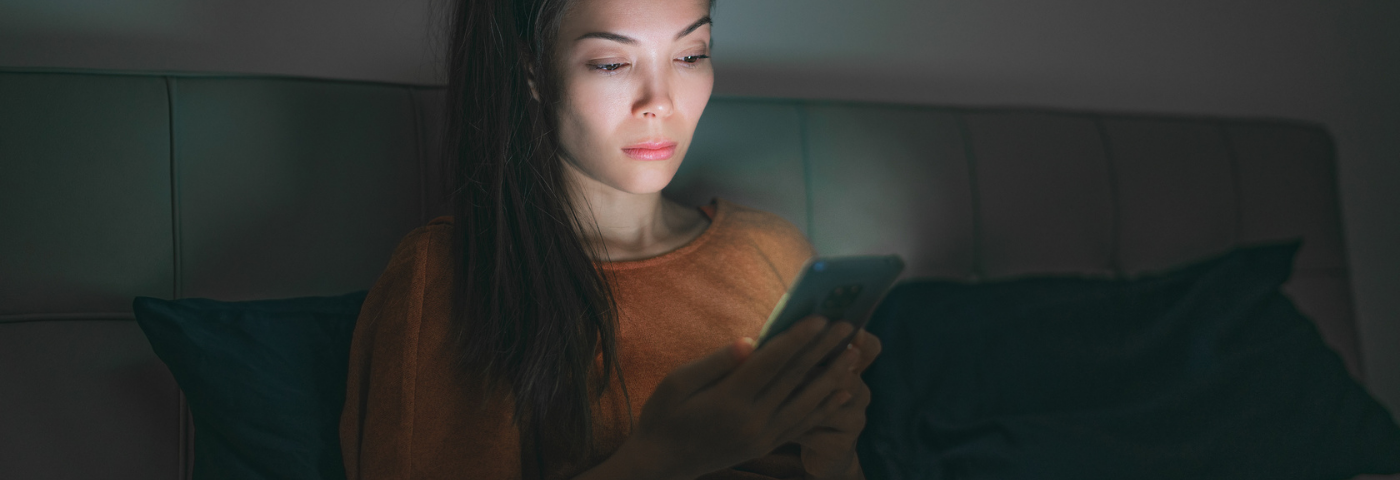Unilever expert says Covid-19 has put blue light back in the spotlight
The effects of blue light is firmly back on the consumer concerns radar as screen time has increased due to lockdowns and the increase in people working from home, an expert from Unilever explains.
“Blue light is one of many external aggressors which can have a negative impact on the health of our skin,” said Samantha Tucker-Samaras, global vice president of science & technology for beauty and personal care at Unilever.
Research has shown that blue light can penetrate the skin even more deeply than UV light, while it can also have a significant impact on our body clocks.
Research highlighted by the team at Unilever finds that 60% of people now spend more than six hours of day in front of a computer screen or other mobile devices, but, perhaps more alarming, only around 1/3 of those consumers are aware of the potential hazards of blue light.
The Unilever team now working on the project to develop solutions aimed at protected consumers from blue light exposure say that given the current trend of increased screen and device time, this goal is of even of paramounce.
“Unilever’s 5,000 experts across the world work to bring science and innovation insights to products which benefit people’s health and wellbeing, and we have a duty to let people know how best to protect themselves from the impact of blue light exposure,” added Tucker-Samaras.
Nivea introducing smart, scannable packaging
Beiersdorf has given its Nivea men’s range a boost by introducing a smart scannable packaging, in partnership with Google Lens.
The Nivea Men Active Energy Wake-up Instant Effect Gel now offers three digitally retrievable experiences that can be accessed through the new smart packaging design.
By simply scanning the smart packaging with Google Lens, consumers get access to application tips, extra product information and an interactive encounter with actor Edin Hasanovic, a German Netflix star.
The special edition is limited to just 1,000 pieces, with the content developed through the exclusive partnership with Google Lens.
“This innovation enables us to strengthen the connection to our consumers in a new and unique way,” said Martin Böhm, Chief Digital Officer at Beiersdorf.
“With the interactive Google Lens technology, we can offer a customizable, multi-faceted brand experience directly on the product and at the point of sale. We are convinced that this technology and the way we use it as a brand can revolutionize the shopping experience.”
University of Belgium highlights contrasting risk assessment across the globe
A new study by a team of scientists at the University of Belgium highlights the importance of knowing what the potential risk of ingesting cosmetics ingredients can pose.
In the US, the Environmental Working Group says that the study highlights a gap between risk assessment requirements for cosmetic ingredients in Europe, compared to there.
Certain cosmetics can be ingested inadvertently in small amounts, particularly those applied to the face, while small children are also at risk of mistakenly consuming products in the belief they are edible.
In an article, which was published in the recent edition of the Journal Archives of Toxicology, the university researchers analysed 104 opinions on the safety of 101 cosmetics ingredients, published by the European Scientific Committee on Consumer Safety.
These opinions focused on the effects of repeat dose tests and found that liver, kidneys and blood are the organs and tissues most commonly affected under repeat oral exposure to common cosmetics ingredients.
In the journal article, the scientific team indicate that such exposure can lead to harm, highlighting the importance of oral dose studies for cosmetic ingredients, making for strong hazard safety data.
In the U.S., the Environmental Working Group has picked up on the European studies to highlight how no comparable testing is being conducted in the U.S. where now hazard or safety tests are required by law.
Conversely, this is a specific requirement under E.U. regulations. In response to this, the EWG is currently lobbying congress in the hope of introducing new safety testing for cosmetics and personal care that covers this kind of hazard.
Grande Cosmetics raises funds to feed America
US colour cosmetics brand Grande Cosmetics has started a second charity campaign to raise funds for American families that have been economically impacted by Covid-19.
The first Grande Cosmetics Beauty From the Heart campaign managed to raise $200,000 for Feeding America, a non-profit that is the nation’s largest domestic hunger relief organisation.
The company has now started a second campaign to raise funds for the same organisation, this time with a goal of raising another $100,000, a sum that would bring the total monies raised to the $300,000 mark.
Through to September 30th, Grande Cosmetics has pledged to donate 10% of all purchases to Feeding America, while customers will also receive a free Mini GrandeLIPS Plumper Liquid Lipstick with all related purchases.
“Our Beauty From the Heart campaign was created at a time when raising money to deliver food to families out of work or displaced from COVID was immensely necessary,” remarks Grande Cosmetics Founder, Alicia Grande.
“As we start to re-enter the workplace, there is still a lot of unknown, as well as families who have been furloughed or who must stay home to care for their loved ones. We realize it’s as important now as ever to support these individuals and that’s why we have committed to a new goal to raise an additional $100,000 for this worthy cause.”
Learn why the beauty industry has seen a rise in e-commerce in our last news round-up.

